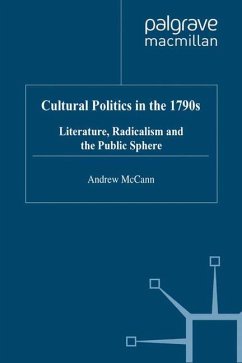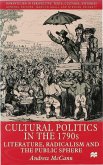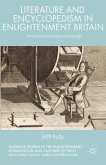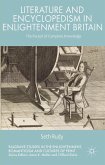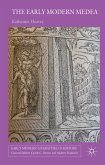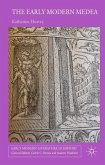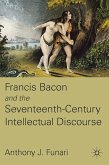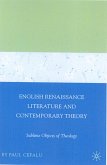Cultural Politics in the 1790s examines the relationship between sentimental literature, political activism and the public sphere at the end of the eighteenth century. Drawing on critical theorists such as Habermas, Negt and Kluge, Marcuse and Foucault, it attempts to demonstrate how major literary and political figures of the 1790s can be read in terms of the broader dynamics of modernity. Reading a diverse range of political and literary material from the period, it examines how relationships between the aesthetic and the political, the private and the public, mark the emergence and consolidation of bourgeois behavioural norms and the simultaneous marginalization of potentially more radical forms of political and cultural production.
Bitte wählen Sie Ihr Anliegen aus.
Rechnungen
Retourenschein anfordern
Bestellstatus
Storno

